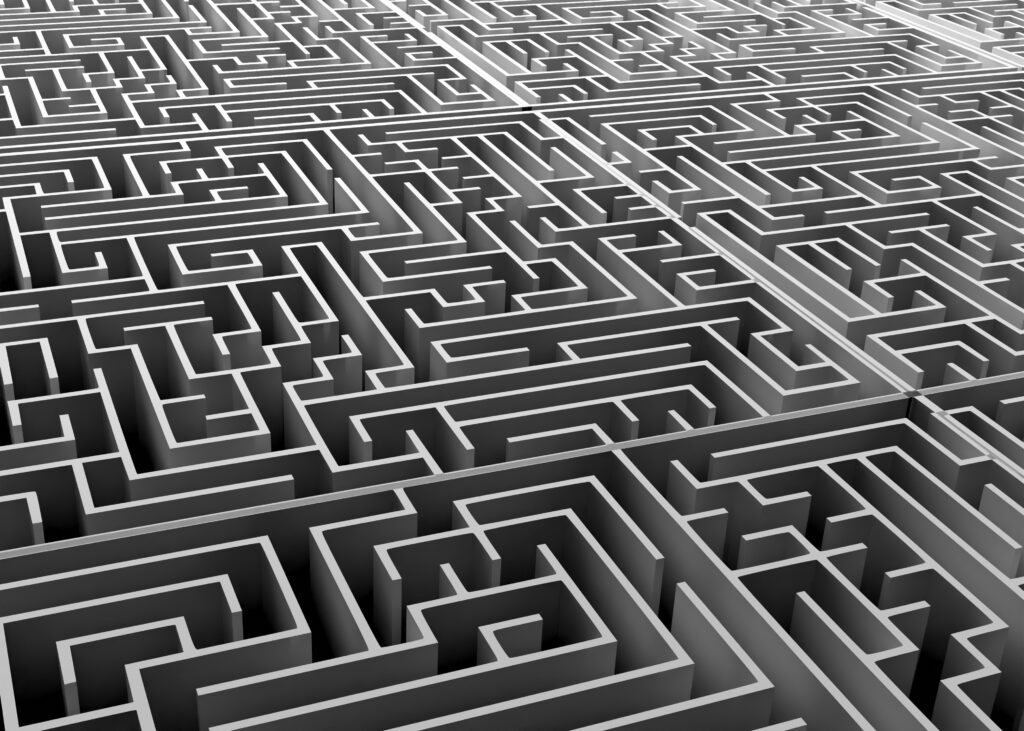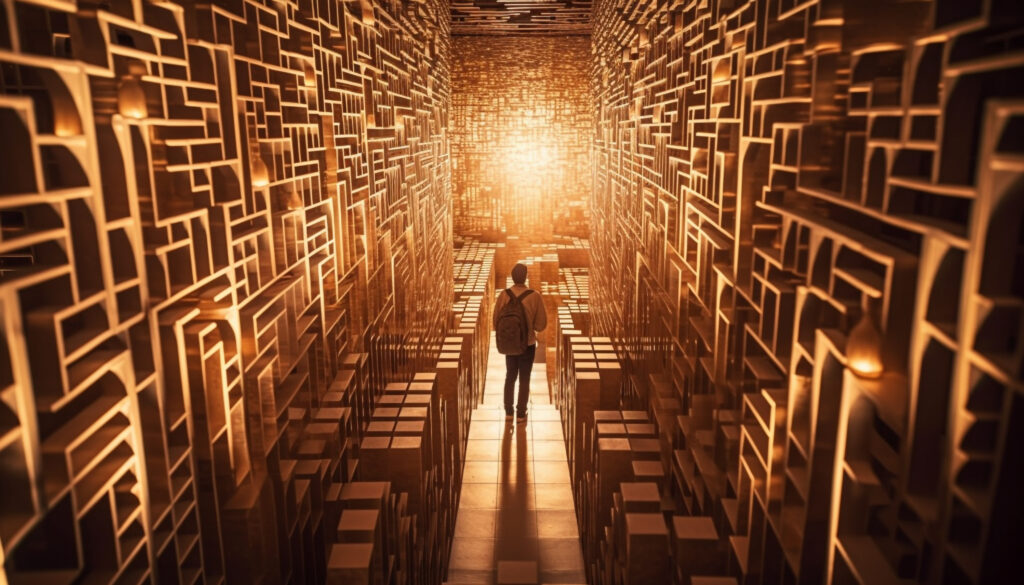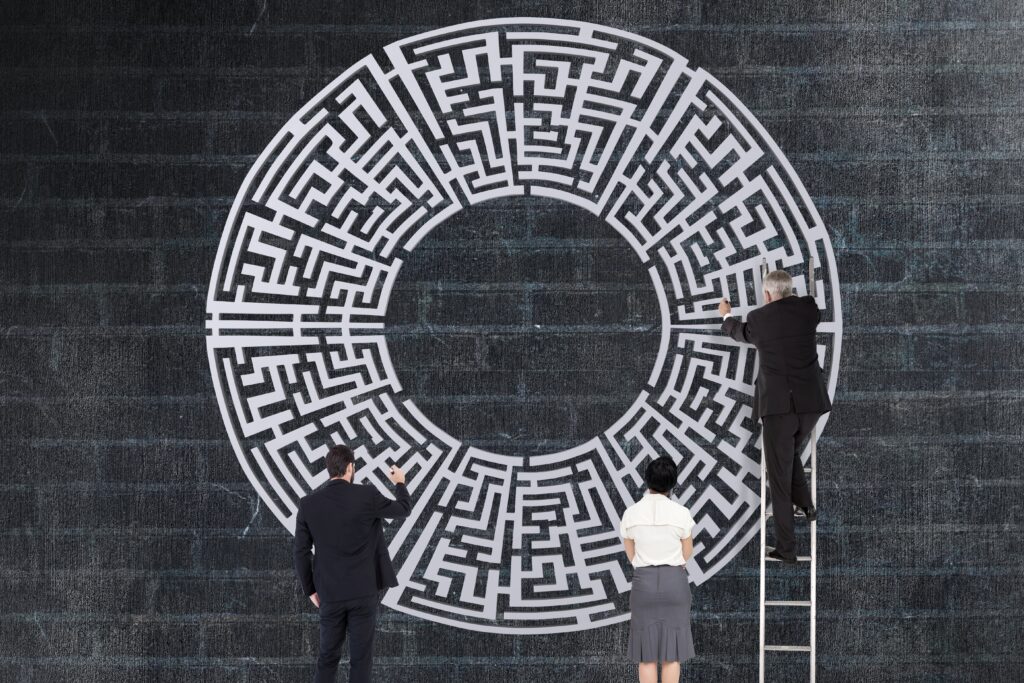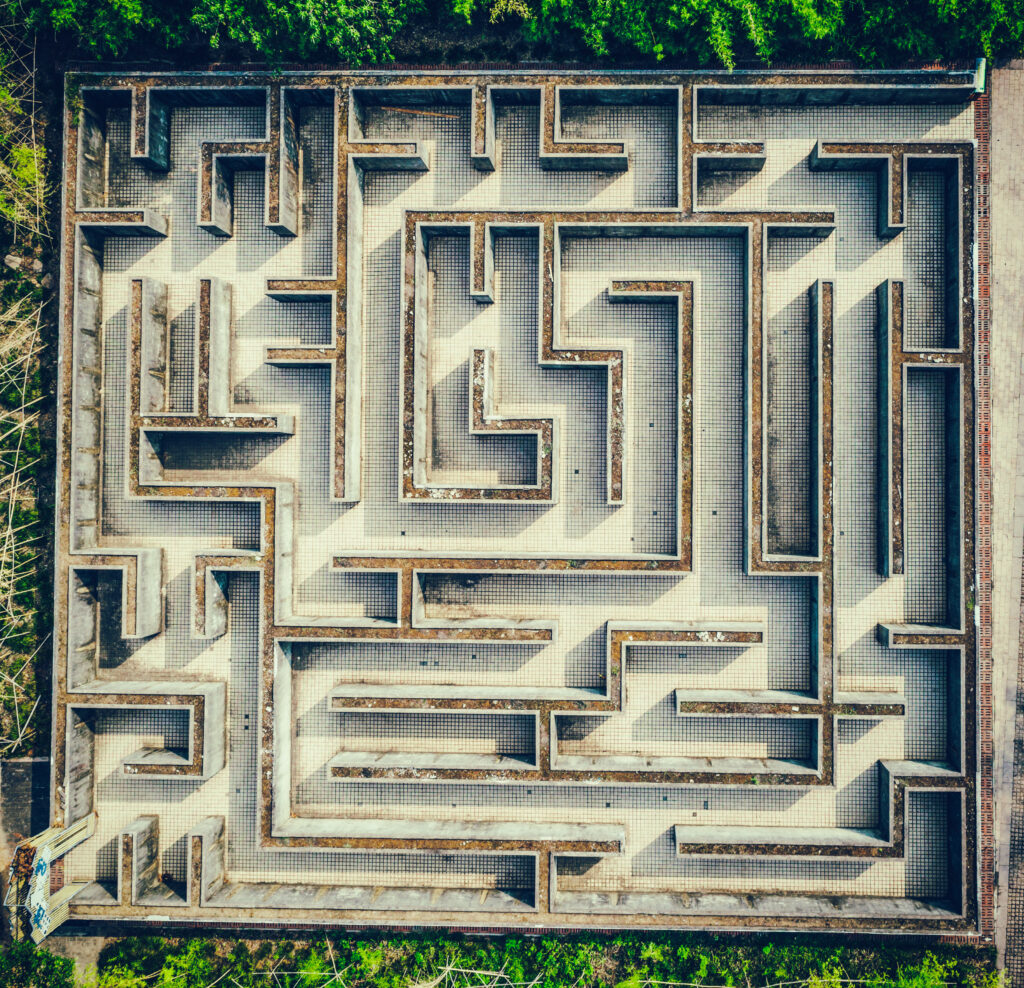Legal Maze Unpacked: Artificial Muses
In the burgeoning sphere of artificial intelligence, ‘Artificial Muses‘ have transcended the role of mere assistants to become co-creators in the artistic and literary domains, thus precipitating a complex legal labyrinth.
As these advanced algorithms craft text that mirrors human ingenuity, the traditional precepts of copyright law, once uncontested, now teeter on the brink of obsolescence. The judicial system finds itself at a crossroads, grappling with questions of originality, authorship, and the essence of creativity in the digital age.
This discourse seeks to dissect the intricacies of existing legal frameworks and their applicability—or lack thereof—to the intellectual property generated by artificial intelligence. While Microsoft maneuvers to shield its clientele within this uncharted territory, authors and creators observe with palpable trepidation, contemplating whether their roles might be overshadowed by the machines they once programmed.
In navigating these untested waters, one must consider: can the law adapt swiftly enough to keep pace with the rapid evolution of AI, and what could the ramifications be for human creativity?
The ensuing analysis sheds light on these pressing issues, inviting contemplation of the future legal landscapes that may govern our synthetic counterparts.
Key Takeaways
- The legal frameworks surrounding AI-generated content must be reevaluated and adapted to address authorship, copyright, and ownership issues.
- Jurisdictional heterogeneity complicates the legal landscape for AI-generated content, leading to complex international disputes and ownership debates.
- Regulations and frameworks are needed to address AI’s role in consumer protection, including ensuring consumer safety and protecting against defamation and privacy violations.
- Balancing innovation with protection is crucial, requiring collaboration between policymakers, industry, and legal experts to find the right balance and foster responsible AI development.
Defining “Artificial Muse”

In intellectual property law, the term ‘Artificial Muse’ refers to AI systems that generate content that may impinge upon the legal rights traditionally reserved for human creators. This emergent phenomenon presents a problem within copyright law and policy, as it challenges established doctrines regarding authorship and the inception of a work of art. Such systems are often trained on vast corpora of existing works, raising whether the resultant output is a derivative creation or an original work meriting protection.
The incursion of artificial intelligence into creative domains necessitates a rigorous analysis of how to train generative AI while respecting the intellectual contributions of human predecessors. The Microsoft Copilot Copyright Commitment exemplifies an attempt to navigate these uncharted waters, offering a shield for users against copyright infringement claims. However, the adequacy and adaptability of current legal frameworks to the nuances of AI-generated content remain under intense scrutiny.
Addressing the schism between traditional legal constructs and the capabilities of artificial intelligence will require a deliberate recalibration of copyright norms. This recalibration must reconcile the need for incentivizing innovation with the imperative of safeguarding human creators’ moral and economic rights, ensuring equitable recognition and remuneration in a rapidly evolving digital landscape.
Copyright Challenges Arising

With the proliferation of AI-generated content, copyright law faces unprecedented challenges in adjudicating claims of infringement and authorship. The crux of the issue lies in determining the applicability of existing statutes to creations generated by non-human entities. Here, we delve into the complexities surrounding such legal conundrums:
- Jurisdictional Heterogeneity: Lawsuits have emerged in various legal spheres, each interpreting copyright infringement claims with differing lenses, creating a patchwork of judicial responses. This fragmentation complicates the legal landscape for AI-generated content, especially when considering international implications.
- Common Law Evolution: Defamation claims and privacy violations arising from AI-generated content push the boundaries of traditional legal doctrines. These instances necessitate an evolution in the common law to address the nuances of AI models as they intersect with personal rights and copyrighted data.
- Regulatory Imperative: There is a pressing need for bespoke regulations that can systematically govern AI’s creative capacities. Without such law and policy issues, class action lawsuits catalyze judicial reinterpretation or legislative intervention, urging a proactive stance in regulatory development.
An in-depth analysis reveals that the trajectory of copyright law must accommodate the rapid advancements in AI technology, balancing innovation incentives with the protection of individual rights and creative ownership.
Originality and Authorship

How do contemporary legal systems confront the intricate issue of assigning originality and authorship to content generated by artificial intelligence? As AI tools become more entrenched in the creative process, traditional legal constructs are challenged. The Copyright Office has grappled with the burgeoning reality of AI-generated content, provoking debates on the need for new legal frameworks to address digital authorship’s complexities adequately.
The table below outlines key considerations in the legal discourse:
| Aspect | AI-Generated Content | Legal Interpretation |
|---|---|---|
| Originality | Determined by novelty and expression | Rights may default to the AI operator or user |
| Authorship | Typically attributed to human creators | Ambiguous when AI autonomously creates content |
| Ownership | It is an ethical and legal imperative to acknowledge creators | Legal systems currently in flux |
| Attribution | It is an ethical and legal imperative to buy creators | Uncertainty in how to attribute AI contributions |
Legal scholars are currently suing traditional concepts by advocating for nuanced interpretations that recognize the collaborative nature of AI-generated works. The evolution of AI use in creative endeavors necessitates an analytical and precise examination of originality and authorship, urging lawmakers to consider the implications of AI’s role as a non-human actor within the creative industry.
Ownership and Liability Shifts

The delineation of ownership and the apportionment of liability in cases involving AI-generated content are pressing issues that challenge existing copyright frameworks and demand meticulous legal analysis. Ownership and liability shifts in this context arise under several vital circumstances:
- Jurisdictional Variance: Different jurisdictions may have diverging legal positions on whether AI-generated content can be copyrighted or who holds such rights, potentially leading to complex international legal disputes.
- Defamation and Consumer Protection: Claims of defamation or violations of consumer protection laws involving AI outputs can trigger ownership debates, potentially extending liability to AI companies that have written the underlying lines of code.
- Privacy Considerations: Violations of privacy through AI technologies may prompt legal actions where ownership and the responsibility for such breaches become central questions.
In the scholarly pursuit to navigate these issues, AI companies must engage with the evolving legal landscape, as exemplified by Microsoft’s Copilot Copyright Commitment. This policy proactively addresses the ownership and liability shifts accompanying AI systems’ novel outputs. The development of new laws and regulations is thus imperative to provide clarity and direction for all stakeholders involved in using artificial intelligence as a creative tool.
Future Legal Frameworks

As we contemplate the shifts in ownership and liability regarding AI-generated content, it becomes increasingly apparent that future legal frameworks must be meticulously crafted to address the burgeoning realm of artificial intelligence. As it stood last year, the legal landscape has been outpaced by the rapid evolution of AI, demanding dynamic and prescient legal responses. Notably, integrating AI in social media platforms and the proliferation of AI-authored texts underscore the urgency for regulatory clarity.
The following table illustrates key areas for legal consideration:
| Key Areas for Legal Consideration | Current Challenges | Potential Solutions |
|---|---|---|
| Copyright Infringement | AI-generated content disputes | Clear guidelines for AI-generated works |
| Consumer Protection | Defamation or privacy violations on social media | Robust frameworks to address AI’s role |
| Transportation & Employment | Job displacement by autonomous vehicles | Regulations balancing innovation with workforce impact |
An analytical approach reveals that the legal difficulties presented by AI are not merely extensions of existing statutes but represent fundamentally novel issues. Microsoft’s Copilot Copyright Commitment, established last week, attempts to forge a path in protecting customers, yet it is a developing step in an evolving saga. The crafting of future legal frameworks must be precise, balancing the need to foster innovation with the imperative to protect individual rights and societal norms.
FAQs
What does “Artificial Muses” refer to in this context?
Artificial Muses” likely refers to using artificial intelligence (AI) systems or algorithms as sources of inspiration or creative influence in the artistic process.
Why is it described as “Unpacking the Legal Maze”?
“Unpacking the Legal Maze” suggests that complex legal considerations and challenges are associated with using AI in the creative process. It implies that navigating the legal implications of AI-generated content or AI-assisted creativity involves unraveling intricate legal complexities.
What legal issues are associated with the use of AI in creative processes?
Legal issues can include intellectual property rights, copyright ownership, licensing agreements, ethical considerations, and issues related to data privacy, especially if the AI system is trained on proprietary or sensitive data.
Can AI-generated art be copyrighted, and who owns the copyright?
The copyright status of AI-generated art can be complex. In some jurisdictions, the creator or owner of the AI model may hold the copyright. However, legal frameworks might need to adapt to address the unique challenges AI-generated content poses.
How do licensing agreements come into play in the context of AI-generated art?
Licensing agreements determine how AI-generated art can be used, shared, or commercialized. These agreements define the terms under which the art can be accessed or modified and may involve considerations for both the AI creator and the user.
